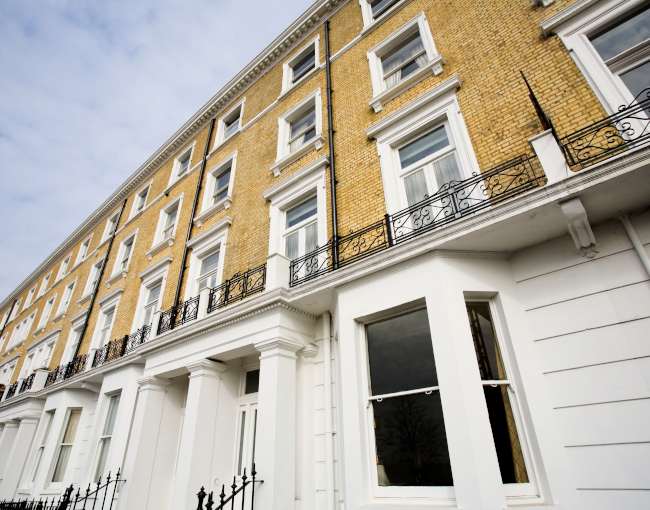Home > Insights > Publications > What landlords need to know about Chicago’s ‘COVID-19 Eviction Protection’ ordinance
The City of Chicago has instituted new measures aiming to benefit tenants who have experienced a “COVID-19 Impact” (defined below) and to limit evictions resulting from the pandemic. An ordinance effectuating these measures, the “COVID-19 Eviction Protection” ordinance (the “Ordinance”), was fast-tracked directly into the City Council’s Committee on Housing and Real Estate at its June 15 meeting, and was approved by City Council at its subsequent meeting on June 17. The Ordinance is effective retroactively, beginning March 21, 2020, and will run for 60 days after the reopening of eviction courts. According to Chicago Mayor Lori Lightfoot’s office (Mayor’s Press Release), the ultimate goal of the Ordinance is to reduce the number of evictions and to prevent increased housing insecurity in the City of Chicago.
The “COVID-19 Eviction Protection” Ordinance
The Ordinance applies to every rental agreement for dwelling units within the City, in an effort to protect tenants who cannot pay rent as a result of a “COVID-19 Impact.” A “COVID-19 Impact” is defined broadly, as “any loss, reduction or delay in receipt of income, or loss or reduction of employment attributable in whole or in part to COVID-19”.
A landlord seeking to terminate a dwelling unit tenant must first give the tenant five days’ notice of such an intention. If, within those five days, the tenant provides a “Tenant Notice of COVID-19 Impact,” the landlord must allow for an additional 7-day “negotiation period” prior to filing an eviction action or maintaining an action for rent and/or damages without terminating the rental agreement. The landlord must make a good faith effort to contact and negotiate with their tenant during this 7-day period. A landlord cannot request personal information regarding the tenant’s retirement accounts, assets and personal property to assist with these good faith negotiations.
The Ordinance provides options for resolving a tenants COVID-19 Impact including, among other things, amortizing unpaid rent over a longer period (not less than 60 days), submitting the matter to mediation and applying the tenant’s security deposit to the amount of rent unpaid. While the Ordinance does not prescribe rental repayment terms, it does prohibit non-disclosure agreements and institute a cap on interest and late fees. Landlords should take care to comply with the Ordinance in any lease amendment or other document evidencing an arrangement with tenants.
Prohibitions on enforcing residential eviction orders
If no resolution is reached during the mandatory 7-day negotiation period provided by the Ordinance, the landlord must plead and then prove (through contemporaneous documentation) that negotiations were conducted in good faith. Nonetheless, at this point in time, recent state and county measures prevent enforcement of residential eviction orders. On May 28, 2020, the Circuit Court of Cook County amended General Administrative Order 2020-01 and extended its ban on residential real estate eviction orders until further order of court. Additionally, Governor J.B. Pritzker’s March 20, 2020 Executive Order (2020-10) suspended the enforcement of eviction orders and thereafter, his April 23, 2020 Executive Order prohibited the commencement of a residential eviction action unless a tenant poses a direct threat to the health and safety of other tenants, an immediate and severe risk to property or a violation of any applicable building code, health ordinance or similar regulation.
Additional sweeping residential tenant protections could be forthcoming
The City Council recently considered another residential tenant protection measure, the “Fair Eviction Notice” ordinance (O2020-2862), also sponsored by Mayor Lightfoot. With respect to leases of 6 months or more, the proposed ordinance would triple the advance notification time landlords must give their tenants before terminating, declining to renew, or materially changing the terms or conditions of their lease (including an increase in rent) from 30 days to 90 days. This proposed measure also would require landlords to pay $2,500 each to tenants who are forced to vacate because of demolition or substantial redevelopment plans within 90 days after a tenant’s departure. “Substantial redevelopment” is defined as extensive structural repair or remodeling that (i) requires a building, electrical, plumbing or mechanical permit, or (ii) is valued at $25,000 or more per unit. Currently, the Fair Eviction Notice ordinance is set to be heard by the City Council’s Committee on Housing for discussion in advance of City Council’s July meeting. If it passes, the Fair Eviction Notice ordinance will result in Chicago having one of the longest notice periods for evictions in the country.
The Fair Eviction Notice ordinance has been opposed by some aldermen and categorized as an alternative to the proposed “Just Cause Eviction” ordinance (O2020-3449). Like the Fair Eviction Notice ordinance, the Just Cause Eviction ordinance would increase the notice requirements for landlords looking to increase rent (using a scaled approach that ties the notice timeline to the percentage increase in rent), and would also award relocation assistance to tenants whose tenancy is terminated under certain grounds (of $10,600, in some circumstances). The Just Cause Eviction ordinance would prevent landlords from attempting to recover possession or initiate eviction actions unless the landlord establishes one of the specific grounds listed in the ordinance. Both the Fair Notice Eviction ordinance and the Just Cause Eviction ordinance – measures that would impact landlords and tenants beyond the duration of COVID-19 – have been championed for their relief afforded to tenants, but criticized for their dramatic effect on landlords, including a disparate impact on affordable housing providers and small landlords.
Stay tuned for further updates as these and other pending measures play out over the coming weeks and months. Thompson Coburn continues to monitor changes in municipal ordinances, regulations and procedures resulting from the COVID-19 Pandemic and their effect on the Real Estate market.
Jeff Merar and Talar Berberian are members of Thompson Coburn’s Real Estate practice group.
Click here to subscribe to News & Insights from Thompson Coburn LLP related to our practices as well as the latest on COVID-19 issues.

